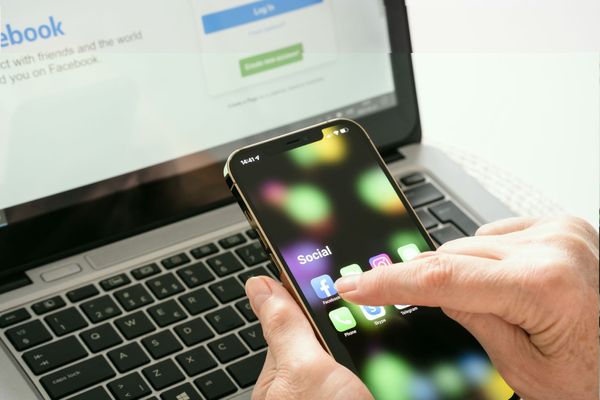What Security Risks do iPhone Users Face in 2024?

iOS, like any other operating system, faces various security risks – not least of which are targeted malware attacks and socially engineered scams.
Apple takes security seriously and has equipped its mobile operating system with powerful safeguards against cyber threats, including the new Lockdown Mode, which drastically reduces the attack surface of iOS by limiting some functions.
The Cupertino-based company also releases updates regularly to address newfound vulnerabilities in an endless cat-and-mouse game with spyware operators.
At the end of the day, no system is entirely immune to threats. While iOS is considered generally secure, user awareness and responsible device management are essential for maintaining tight security.
Here’s a rundown of the key threats to look out for in 2024, and how to defend against them:
Social engineering (phishing)
Attackers may use social engineering techniques to manipulate iOS users into revealing personal information or taking actions that compromise their security. Phishing is by far the most common such scenario. Whether the attack unfolds on email or SMS (smishing), iOS users can be tricked into revealing sensitive information such as login credentials or credit card details. Aside from exercising awareness and good cybersecurity hygiene, iPhone users can employ a dedicated security solution to help mitigate this risk. Bitdefender Mobile Security for iOS automatically scans your incoming texts and calendar invites for socially-engineered scams and malicious links.
Malicious apps
While Apple has a stringent app review process, shady apps can still crop up in its walled garden. Users should scrutinize any new app they’re about to install, especially regarding its data collection practices and permissions on-device. Overall, the safest place to download iOS apps remains Apple’s App Store. While there’s talk of regulators twisting Apple’s arm to enable sideloading on iOS, that prospect has yet to materialize. If it does, and if history is any indication, there is good reason to believe Apple will enforce strict rules around the practice, with powerful defenses around security and privacy – whether people like it or not.
Jailbreaking
Jailbreaking is not as popular as it used to be, yet some users still hack their iPhone to gain more control or add extra functionality. This practice, though, can weaken an iPhone’s security, since it bypasses iOS’s inherent security mechanisms and allows the installation of software from unofficial sources.
Insecure WiFi networks
Regardless of your phone vendor or OS, smartphones are inherently vulnerable to insecure internet connections. Hackers can set up fake networks to intercept data, leading to data theft or eavesdropping. An insecure public network can also be hacked to perform a man-in-the-middle attack and collect sensitive data in transit. Refrain from entering sensitive data while using public WiFi. If you must do so, consider using a VPN to secure your connection.
Spyware
Failing to update iOS regularly can leave devices vulnerable to known security flaws. In the past few years, spyware operators have taken full advantage of unpatched bugs to deploy malware onto unsuspecting victims’ iPhones. It's crucial to install updates as Apple makes them available – especially the out-of-band / backported / Rapid Security Response updates that are almost always meant to plug holes exploited by attackers.
Privacy
Apple focuses plenty on constantly enhancing user privacy, but it’s not a one-size-fits-all affair. iOS 17 promises even more data privacy enhancements, but iPhone users should review and adjust settings to their own privacy needs and preferences, and limit data sharing with apps, websites, advertisers, etc.
Physical theft
If your iPhone is not protected with a passcode or biometric authentication, a thief can access personal information on it. Use strong passcodes, Touch ID, or Face ID to secure the device, and enable Find My iPhone to help locate or remotely wipe it if it’s stolen.
To mitigate these risks in 2024:
· Keep iOS and apps up-to-date
· Be wary of socially engineered scams (i.e. phishing / smishing)
· Download apps only from the official App Store
· Use a VPN when connecting to public Wi-Fi networks
· Avoid jailbreaking the device unless fully aware of the risks
· Use strong passcodes, Touch ID or Face ID to secure the device
· Enable Find My iPhone to help locate and remotely wipe the device in case of theft
· Regularly review and adjust privacy settings
· Be cautious when clicking on links or providing personal information online
· Use a dedicated security solution to defend against malware, scams, and other cyber threats
Stay safe!
tags
Author
Filip has 15 years of experience in technology journalism. In recent years, he has turned his focus to cybersecurity in his role as Information Security Analyst at Bitdefender.
View all postsRight now Top posts
How to Protect Your WhatsApp from Hackers and Scammers – 8 Key Settings and Best Practices
April 03, 2025
Outpacing Cyberthreats: Bitdefender Together with Scuderia Ferrari HP in 2025
March 12, 2025
Streamjacking Scams On YouTube Leverage CS2 Pro Player Championships to Defraud Gamers
February 20, 2025
How to Identify and Protect Yourself from Gaming Laptop Scams
February 11, 2025
FOLLOW US ON SOCIAL MEDIA
You might also like
Bookmarks








